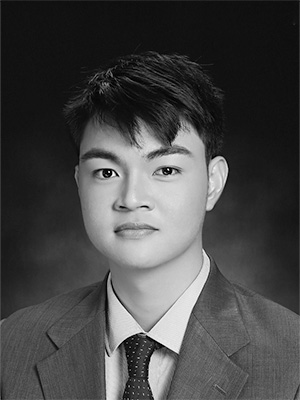Tonight in Baguio, the moon chants no lullabies
The moon does not fight.
–Deng Ming Dao
They have built edifices of glass,
mirrors that mock the lush mountains.
What once cradled the clouds
now crouches beneath shadows–
the moonlight fractured into five-digit monthly rent dues.
She who is veiled by smoke and divine right
chants no lullabies tonight.
Her light scatters against super malls and mega towers
that pierce the horizon like jagged needles,
threading star-spangled dreams
into privatized markets and phony stone kingdoms.
Even the stars, once familiar to farmers and dreamers,
are drowned in the neon-lit glare of politicians' faces.
The constellations dissipate like the elders driven from their lands,
replaced by blueprints and deeds of sale,
perpetuated by a self-proclaimed social activist
who also happens to be the mayor.
Do you remember the sky before it was auctioned away?
When the stars nestled in their branches
and the moon poured her glow freely,
spilling silver across the city that was built by those from
the land of the free (market) and the home of the brave (McCarthyites)?
So, if your nights are still kissed by stars,
if the moon still chants you lullabies,
in the cacophony of capitalist commotion,
look up–and while you can, chant back.
For here, just like our lands,
even the sky is stolen from us,
next, the moon.
Guard her as you would your home,
let your voice rise like the mist through pines.
Lie not still as the darkness claims her–
we owe it to her to stand tall, fight for her light,
and ensure she continues chanting her lullabies to us all.
Baguio’s Last Summer
In some stories, we are the shepherds,
sometimes, the Pharisees.
Today, I am my mother’s witness in the promised land
of shawarma and honey,
my sisters circle in rented bicycles like modern pilgrims,
their shadows stretched thin and holy across the pavement.
My mother calls this day a day of rest,
and we claim it like a prize,
squeezing our Ilocano cadence into the park’s tight seams,
we try to find bite-sized pieces of joy
like pine needles in cracked concrete,
as if we, too, are guests in a space that once knew our names.
I think of Noah now, his animals,
two by two, seven by seven for those he thought were pure,
and wonder if he ever looked back at what couldn’t fit.
Did he weave a grass bracelet, pen a poem,
or prepare a weeklong ritual to remember the voices left behind,
the earth that cradled them, the green
that choked under water and wood,
longing for a space to breathe, to flourish once more?
Here, my sisters in matching shirts hold the day
like a piece of communion wafer, while the city is flooded with
man-made crowds and towers manmade,
the earth at its limits but still making space.
I see it in frames–
my sisters, my mother, this land that sustains us,
even as it sighs beneath the weight of our feet.
Perhaps, in another translation of heaven,
this star-spangled city will be wide enough to hold us all,
our names cradled in the earth’s deep grooves.
No need for colonial contesting, no warranted land-grabbing,
no cowboy strain. Still, my sisters continue
to ride in the shadow of pine trees
that might not survive another artificial stone kingdom.
Bless the trees, though, for trying, for holding fast.
We hold our blessings close–
each pedal forward, each chant against the slow diminishing of space.
In this story, we are both the tourists and the trees.